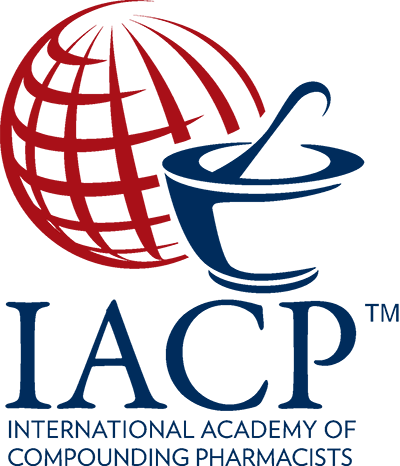How Compounding Pharmacies Help Providers & their Patients
Learn what a compounding pharmacy is, how it customizes medications to meet unique needs, and how it supports healthcare providers and their patients.

Table of Contents
What is a Compounding Pharmacy?
A compounding pharmacy prepares custom medications to meet patients’ specific needs when commercial options are not suitable or available. By mixing ingredients, adjusting dosages, and creating alternative delivery forms, compounding pharmacies offer solutions that traditional medications may not provide. These pharmacies play a vital role in healthcare, benefiting both patients and providers by ensuring access to personalized and adaptable regimens.
The Role of a Compounding Pharmacy
Compounding pharmacies bridge gaps in standard medication offerings, addressing scenarios where patients cannot use or tolerate commercially available options.
What Does a Compounding Pharmacy Do?
Compounding pharmacies work with healthcare providers to create medications that address unique requirements. Common activities include:
- Customizing Dosages: Adjusting the strength of medications to suit specific patient needs.
- Combining Ingredients: Incorporating multiple active components into a single preparation for convenience and efficacy.
- Creating Alternative Forms: Preparing medications as liquids, creams, gels, or tablets for patients who cannot take pills.
- Removing Allergens or Irritants: Formulating medications without dyes, preservatives, or other additives that may cause adverse reactions.
These services provide essential alternatives, ensuring patients receive customized medication that aligns with their unique health conditions.
Types of Medications a Compounding Pharmacy Prepares
Compounding pharmacies create medications for a wide range of medical fields, including:
- Dermatology: Custom creams and ointments for skin conditions like eczema, acne, and psoriasis.
- Pediatrics: Liquid formulations for children who cannot swallow pills.
- Veterinary Medicine: Medications tailored for animals with specific dosage or flavoring needs.
- Pain Management: Topical gels and creams to provide localized relief.
- Hormone Therapy: Customized hormone replacement therapies for men and women.
This versatility makes compounding pharmacies an invaluable resource for addressing diverse healthcare needs.
How a Compounding Pharmacy Helps Providers
Healthcare providers rely on compounding pharmacies to expand options for their patients.
Supporting Complex Cases
Providers often encounter patients with conditions that require unique solutions, such as:
- Chronic Illnesses: Patients with long-term conditions who develop intolerances to standard medications.
- Allergic Reactions: Patients sensitive to certain dyes, fillers, or preservatives.
- Non-Standard Dosages: Individuals requiring doses not available in commercial products.
Compounding pharmacies allow providers to prescribe medications specifically adjusted to their patients’ medical histories and needs.
Enhancing Compliance
Medication adherence is a significant challenge for providers. Compounding pharmacies help improve compliance by:
- Simplifying Regimens: Combining multiple medications into one formulation to reduce the complexity of regimens.
- Offering Palatable Options: Adding flavors to pediatric or veterinary medications to make them easier to administer.
- Customizing Delivery Methods: Creating topical or liquid alternatives for patients with difficulty swallowing pills.
These adjustments make it easier for patients to follow adhere to prescriptions, thay may improve outcomes.
How a Compounding Pharmacy Helps Patients
For patients, the benefits of a compounding pharmacy go beyond the ability to access medications.
Addressing Individual Needs
Standard medications may not always work for every patient. Compounding pharmacies cater to individual circumstances, such as:
- Unique Conditions: Providing solutions for rare diseases or less common medical conditions.
- Age-Specific Requirements: Offering dosages and forms appropriate for children or the elderly.
- Personal Preferences: Providing unflavored or allergen-free options for those with sensitivities.
By delivering medications that align with individual needs, compounding pharmacies improve the quality of patient care.
Ensuring Continuity During Shortages
Medication shortages can leave patients without access to their regular treatments. Compounding pharmacies can replicate unavailable medications or create alternatives, ensuring that care is not interrupted.
Enhancing Comfort and Convenience
Patients with specific conditions may find traditional medication forms uncomfortable or impractical. Compounded solutions, such as creams for localized pain or transdermal patches for steady absorption.
The Importance of Quality and Safety
Compounding pharmacies are held to high standards to ensure the safety and quality of their preparations.
Regulatory Standards
- USP Guidelines: Compounding pharmacies must adhere to United States Pharmacopeia (USP) standards, such as USP <795> for non-sterile preparations and USP <797> for sterile compounding.
- Accreditation: Many compounding pharmacies are accredited by organizations like the Pharmacy Compounding Accreditation Board (PCAB), ensuring compliance with industry best practices.
Rigorous Processes
Compounding pharmacies follow strict protocols to maintain safety, including:
- Ingredient Verification: Using pharmaceutical-grade raw materials from reputable suppliers.
- Quality Testing: Conducting stability and potency tests to confirm the integrity of compounded medications.
- Sterile Environments: Ensuring contamination-free conditions for medications like injectables and ophthalmics.
These measures provide confidence for both patients and providers when using compounded medications.
When to Consider a Compounding Pharmacy
A compounding pharmacy may be the right choice in situations such as:
- Unique Health Conditions: When no commercial product meets a patient’s specific needs.
- Allergic Reactions or Sensitivities: When a patient cannot tolerate certain ingredients in standard medications.
- Pediatric or Geriatric Care: When children or elderly patients require non-standard dosages or alternative forms of medication.
- Veterinary Needs: When animals require medications adjusted for size, species, or palatability.
- Medication Shortages: When commercial drugs are unavailable due to supply chain issues or manufacturing delays.
Compounding pharmacies ensure all patients receive the needed therapies, even under challenging circumstances.
Choosing the Right Compounding Pharmacy
When selecting a compounding pharmacy, it is essential to ensure that it meets high-quality standards, safety, and service.
Key Considerations
- Experience: Choose a pharmacy with expertise in the specific type of compounding you require (e.g., dermatological, pediatric, or veterinary).
- Communication: Ensure the pharmacy works closely with healthcare providers to develop appropriate formulations.
- Transparency: A reputable pharmacy will provide clear information about its processes, ingredients, and pricing.
By partnering with a trusted compounding pharmacy like Central Ohio Compounding Pharmacy, patients and providers can feel confident in the safety and reliability of the medications they receive.
A compounding pharmacy is an essential part of modern healthcare, offering personalized medication solutions that address the unique needs of patients and providers. By customizing formulations, providing alternatives during shortages, and ensuring compliance with rigorous quality standards, compounding pharmacies support better outcomes for a wide range of medical conditions. Whether for pediatric, veterinary, or chronic care needs, these specialized pharmacies provide the flexibility and innovation required in today’s medical landscape.



